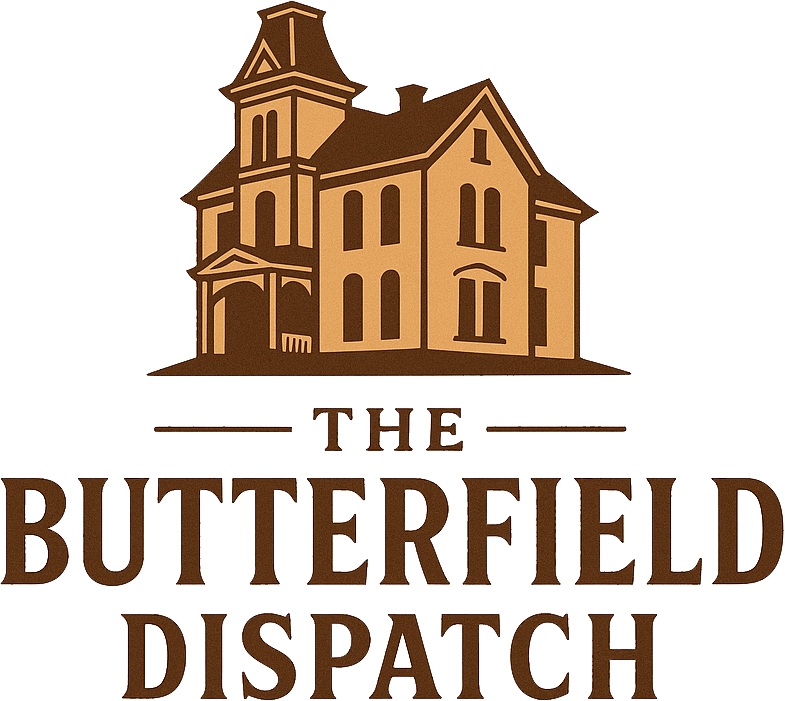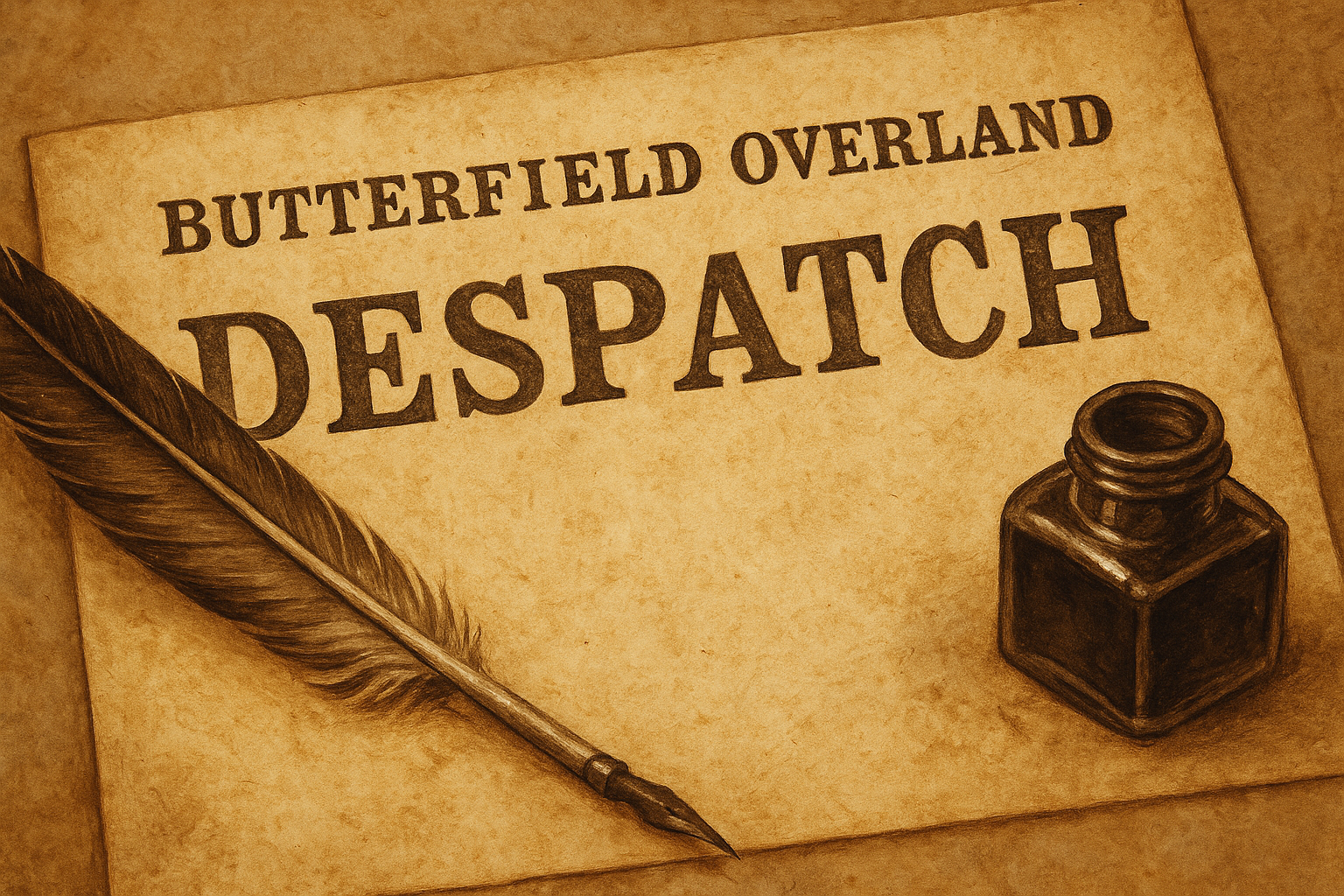The Butterfield Dispatch
Archives
Dispatch or Despatch? The Curious Case of a Frontier Spelling
SIGN UP FOR OUR NEWSLETTER
Dispatch or Despatch? The Curious Case of a Frontier Spelling |
How a single letter marked the shift from British formality to American frontier enterprise |
If you’ve ever noticed the Butterfield Overland Despatch spelled with an “e,” you’re not seeing a typo.
In the mid-1800s, “despatch” was the standard British spelling — the form used in military reports and business letters alike.
But as America’s frontier expanded west, its language began to shift as well.
By the 1870s, American newspapers and government documents favored “dispatch,” dropping the older “e.”
The Butterfield Overland Despatch, founded in 1865 by David A. Butterfield, kept the original British form on its letterhead, timetables, and signage.
Even its competitors sometimes used both spellings in the same advertisement.
The difference wasn’t just linguistic — it mirrored the cultural change of the era.
America was defining its own voice, one more direct and less formal than the English tradition it inherited.
“Dispatch” soon became standard, a symbol of speed, efficiency, and distinctly American enterprise.
So which is right?
Historically speaking, both.
But whether dispatch or despatch, the meaning carried the same frontier spirit — to send something swiftly, reliably, and against all odds. |

